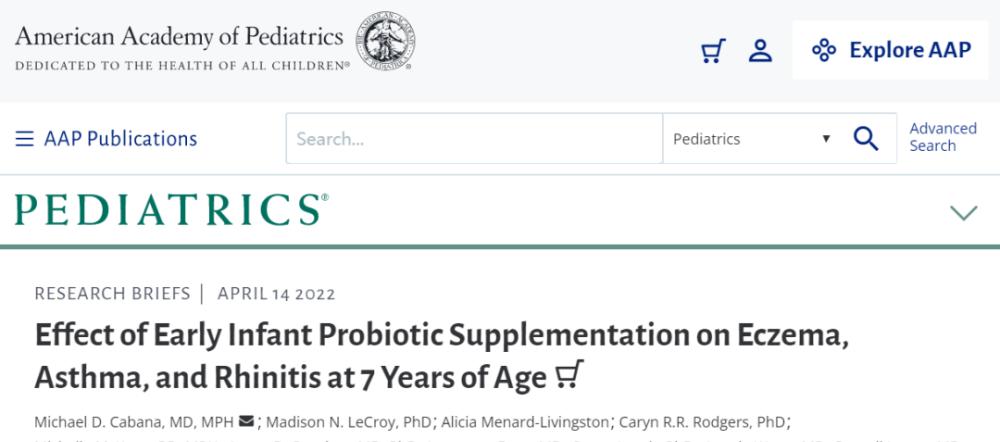▎ WuXi AppTec content team editor
The gastrointestinal tract is the largest immune organ in the human body, and the gut microbiome is one of the key factors in the body's immune defense system. The immune system function of newborns is not yet mature. There are many studies that show that exposure to antigens (specific probiotic strains) in infancy can promote the development of the intestinal mucosal immune system, stimulate and regulate the immune response, and maintain the stability of the immune system.
Lactobacillus rhamnosus is a gram-positive, facultative anaerobic rod-shaped microorganism that is also one of the most common lactobacillus in infant and young child feeding. At present, Lactobacillus rhamnosus has been included in the List of Microorganisms with a Recorded History of Safe Use in Food.
There have been many studies reporting that feeding infants to Lactobacillus rhamnosus from birth is very safe and well tolerated, and it is possible to prevent eczema in children. Recently, a study published in pediatrics, the journal of the American Academy of Pediatrics, came to the opposite conclusion.
The study noted that giving probiotic supplements to high-risk infants during the first 6 months of life [Lactobacillus rhamnosus GG (LGG)] was not effective in reducing the incidence of eczema, asthma or rhinitis in late childhood.

Screenshot source: Pediatrics
The study was based on another randomized, double-blind controlled trial (TIPS study). To investigate the relationship between taking probiotics in the first 6 months of life and the future development of asthma, rhinitis and eczema in children, the researchers included 184 high-risk newborns. At least 1 of these newborns had a history of asthma. The researchers then randomly divided all participants into 2 groups:
Intervention group (n=92): In the first 6 months after birth, each infant received 10 billion colony-forming units (CFUs) of LGG and 225 mg of inulin per day;
Control group (n=92): Only 325 mg of inulin was received per infant.
The primary outcome was the incidence of eczema within 2 years of birth in the participants, and the secondary outcome was the incidence of asthma and allergic rhinitis within 5 years of the participants. After a median follow-up of 4.6 years, the researchers found:
At age 2, the estimated cumulative incidence of eczema was 30.9% in the control group and 28.7% in the intervention group, and there was no significant difference in risk between the two groups (HR=0.95, P=0.83);
At age 5, the cumulative incidence of asthma was 17.4% in the control group and 9.7% in the intervention group, and there was no significant difference in risk between the two groups (HR=0.88, P=0.25).
After 7 years of follow-up, a significant number of participants were still participating in the study, with 49 in the intervention group and 54 in the control group. Of all the participants, a total of 78 were diagnosed with eczema, 32 with asthma and 15 with rhinitis. The incidence of eczema is high in infancy and low in childhood; the incidence of asthma and rhinitis is stable throughout childhood.
The researchers also compared the relationship between the mode of delivery and the timing and outcome of breastfeeding, and found that caesarean section was associated with a 233% increase in the incidence of rhinitis, but there was no statistical significance (HR = 3.33, 95% CI: 1.21 to 9.21).
Image credit: 123RF
The paper notes that for high-risk infants, LGG supplementation in the first 6 months of life does not seem to prevent the incidence of eczema, asthma or rhinitis in children; however, LGG supplementation was not found in the study to have significant side effects.
Dr Jonathan Spergel of Children's Hospital of Philadelphia said: "The study of allergic diseases by probiotics is complex and depends on many factors, such as the environment in which the child grew up, including exposure to pets and pollution, whether the child had a vaginal birth or a caesarean section, and so on. This interesting study shows that there are a number of factors to consider to prevent allergies. ”